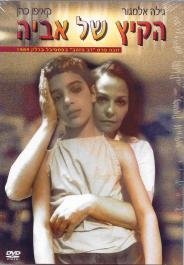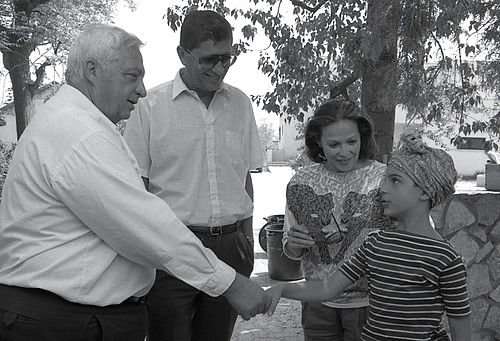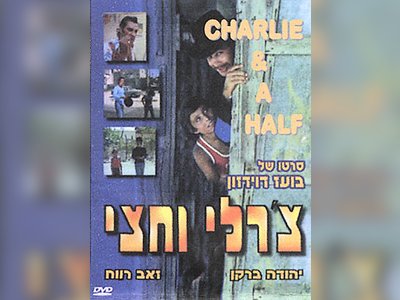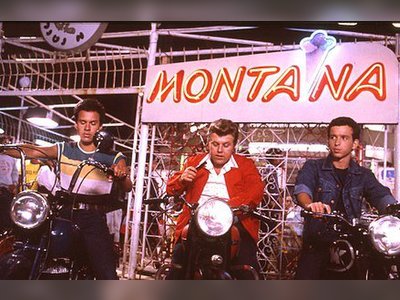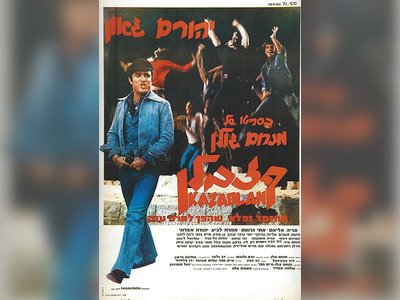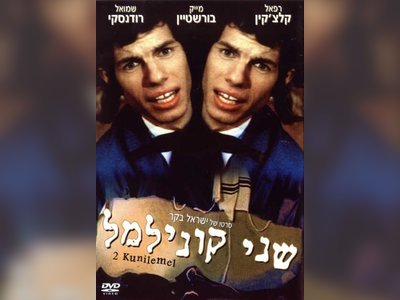The Summer of Aviya
Is an Israeli film from 1988, directed by Eli Cohen. The film is based on a book of the same name written by Gila Almagor, although it contains some changes from the original story. The book itself is based on the childhood experiences of Gila Almagor, who also wrote the screenplay for the film, produced it, and played a leading role as Aviya's mother. The movie was filmed in the Kfar Abraham neighborhood in Petah Tikva, Israel.
"The Summer of Aviya" sold approximately 200,000 tickets in Israeli cinemas, making it a notable success. In 1994, a sequel based on the follow-up book, "Atz HaDomim Tafus" (עץ הדומים תפוס), was released.
Production
In December 1985, Gila Almagor's book "The Summer of Aviya" was published, and a year later, she began working on the screenplay for the film adaptation in collaboration with Chaim Bouzaglo. The first draft of the screenplay was completed in February 1987, and Almagor began seeking funding for the film, a director, and a child actress to play the lead role.
In August, the script received funding from the Warner Foundation, which supports high-quality Israeli films. Almagor auditioned nearly 2,000 children before choosing Kaipo Cohen for the lead role. In April 1988, filming began with a budget of $350,000, part of which was contributed by the Warner Foundation.
Plot
Aviya is the name of a 10-year-old girl who is an orphan living in a foster home. She and her mother are a single-parent family. Her mother's name is Noyah, and she is a Holocaust survivor suffering from a mental illness, currently hospitalized in a psychiatric institution. During the graduation ceremony at her foster home in 1951, to Aviya's surprise, her mother appears and takes her away because she discovered lice in her daughter's hair. After they return home to Petah Tikva, Aviya's mother shaves her head to get rid of the lice, leading the children in their neighborhood to mock her.
Noyah is also the target of ridicule and taunts from the local children, who call her "Partizanka" and "crazy." Aviya refuses to believe that her father is dead. One day, a man named Max Gantz comes to the neighborhood. Aviya, who finds a resemblance between him and the photo of her deceased father, imagines that he is her father.
Aviya wants to participate in ballet lessons given by Maya Abramson, but because she doesn't have nice clothes, Maya doesn't allow her to join the class. Aviya curses Maya and her mother, Ruth Abramson. Later, after performing a stint of community service, Aviya throws a stone that hits Maya's face, temporarily blinding her. Aviya visits Maya in the hospital, brings her flowers, and asks for forgiveness, and Maya forgives her.
Aviya later discovers that Max Gantz is her real father. They both promise not to reveal their secret to anyone else. At the end of the film, Noyah suffers a nervous breakdown and is taken back to the psychiatric institution. Maya knocks on Aviya's house door, angry at her for revealing the secret, but Aviya refuses to open up. Aviya ultimately returns to her foster home.
Awards
The film participated in several international film festivals, including the Berlin International Film Festival, and won several awards. It was Israel's official submission for the Academy Award for Best International Feature Film but did not make the final competition.
In Israeli Culture
The film introduced the phrase "From Birth to Aviya" (Hebrew: מימולדת לאביה) into the Hebrew language, referring to a birthday party where someone invited does not attend. This term is derived from a famous scene in the movie where no one comes to Aviya's birthday party.
- הקיץ של אביה (סרט)he.wikipedia.org
